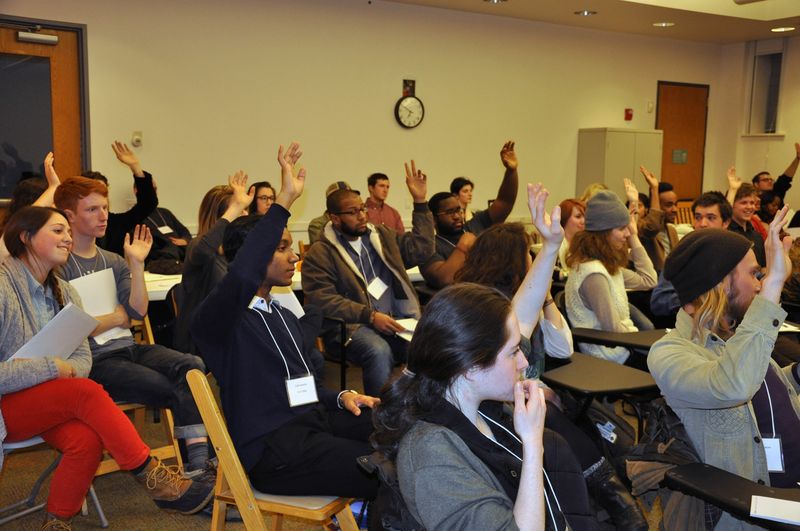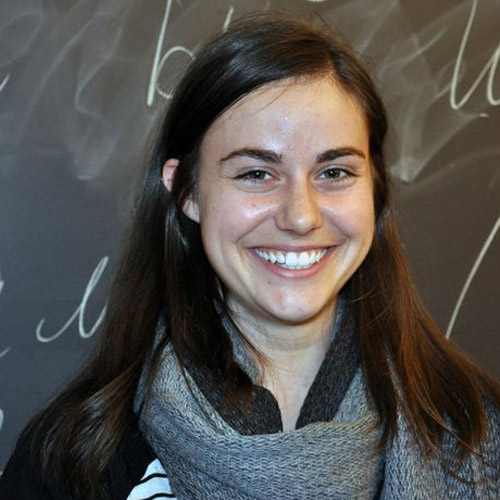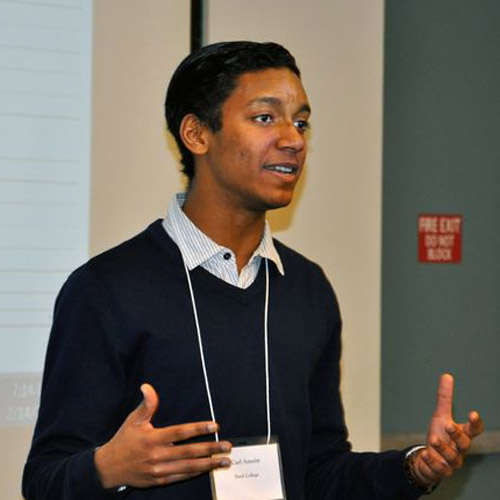Sustainability News by Date
April 2014
Meta: Type(s): Student | Subject(s): Bardians at Work,Environmental/Sustainability | Institutes(s): Bard Undergraduate Programs |
Meta: Type(s): Event | Subject(s): Environmental/Sustainability,Wellness | Institutes(s): Center for Civic Engagement,Simon's Rock at Bard College |
Meta: Type(s): Faculty | Subject(s): Bardians at Work,Environmental/Sustainability | Institutes(s): Bard Center for Environmental Policy,Bard Undergraduate Programs,Center for Civic Engagement |
Meta: Type(s): Student | Subject(s): Bardians at Work,Division of Social Studies,Education,Environmental/Sustainability,Inclusive Excellence,Politics and International Affairs,Student | Institutes(s): Bard Undergraduate Programs,Center for Civic Engagement |
Meta: Type(s): Event | Subject(s): Environmental/Sustainability | Institutes(s): Bard Undergraduate Programs,Center for Civic Engagement |
March 2014
Meta: Type(s): Student | Subject(s): Environmental/Sustainability | Institutes(s): BHSECs,Center for Civic Engagement |
Meta: Type(s): Staff | Subject(s): Environmental/Sustainability | Institutes(s): Bard Center for Environmental Policy,Bard MBA in Sustainability,Bard Undergraduate Programs,Center for Civic Engagement |
 |
C2C stands for Campus to Congress, to Corporation, to City Hall, and to Capitol Hill, emphasizing the importance of sustainable leadership in all of these areas. For C2C, environmental, social, and economic work are intertwined in a larger vision of sustainability. A program of Bard’s Center for Environmental Policy (CEP), it trains and connects undergraduates and recent graduates aspiring to leadership positions in sustainable politics and business. C2C holds several workshops a year at colleges around the country. The one at Bard—this year’s was the third in Annandale—being on home field, tends to draw the biggest crowd, and opening night was no exception. There were 17 students from Bard, one student each from Bard College at Simon's Rock and Bard High School Early College (BHSEC) Manhattan, as well as students from 26 other colleges and recent graduates from six organizations. The farthest traveled student came from the College of Idaho.
 |
| Amy Canavan, The New School |
Participants spent the weekend doing the kind of intensive skill building that is the hallmark of a C2C workshop. “With C2C Fellows we ask the students, ‘What do they need to make a difference in their 20s? How can they change the world in their 20s?’” says Eban Goodstein, director of Bard CEP and the Bard MBA in Sustainability Program. “They tell us, ‘We have a vision; we need to know how to network; and we need to know how to raise money and ask for things.’ What we do on the C2C weekend is really give them those opportunities and start to build that skill set.”
New School student Amy Canavan made the trip from New York City for her second C2C workshop, serving as a public speaking mentor for new Fellows. Canavan is in her fourth year of a five-year, dual-degree B.A./B.F.A. program in environmental studies and fashion design. She attended a workshop last October at Bentley University in Waltham, Massachusetts. “It’s really easy to get bogged down by the issues. This weekend is all about solutions, and that’s my favorite part of the program. I came back from the program last year so inspired and renewed.” At Bentley, as with every C2C workshop, industry professionals spoke on a panel. “It was inspiring to hear people in real jobs, making real money, in real time doing things that are going to change and benefit the planet.” She’s remained in touch with people she met at the Bentley event and she’s now writing her thesis on a project she presented to that group.
 |
| Bard College first-year Carl Amritt |
Fellows practice in several areas over the course of the weekend. They hone their elevator pitches, discuss effective fundraising, and meet leaders in their fields. The weekend begins and ends with the Ideas Marketplace. On Friday night, everyone has one intense minute to propose a project to the group. Participants then vote on the best proposals, and a few winners each give a five-minute presentation as part of Sunday’s closing events. Proposals on Friday night ranged from building a compost bioreactor at Bard to teaching environmental literacy to elementary and middle school students. In the end, among the six chosen for final presentations were BHSEC Manhattan’s Ginger Simms and three Bard students: Logan Hollarsmith ‘14, Mildred Kissai ‘15, and Dana Miranda ‘14.
Bard first-year Carl Amritt made a pitch for green bonds, a financial instrument similar to war bonds that the Department of Treasury and Energy would issue to promote green capital. Like the other participants, he spent a lot of time over the weekend addressing an audience. Amritt appreciated the emphasis on storytelling and networking. “One of the most important things that I took away from the workshop was the phrase that “your net worth is your network”. What Dr. Goodstein had meant by this was that our value as professionals out in the world is dependent on the network of individuals that you know. It is through this network that you make those connections to fuel your career. It was this very network that I entered by attending this weekend conference and becoming a C2C Fellow.”
Meta: Type(s): Event | Subject(s): Bardians at Work,Career Development,Division of Science, Math, and Computing,Division of Social Studies,Economics,Environmental/Sustainability,Politics and International Affairs,Student,Wellness | Institutes(s): Bard Center for Environmental Policy,Bard MBA in Sustainability,Bard Undergraduate Programs,Center for Civic Engagement |
Meta: Type(s): Event | Subject(s): Bardians at Work,Career Development,Division of Science, Math, and Computing,Division of Social Studies,Economics,Environmental/Sustainability,Politics and International Affairs,Student | Institutes(s): Bard Center for Environmental Policy,Bard MBA in Sustainability,Bard Undergraduate Programs,Center for Civic Engagement |
Meta: Type(s): Student | Subject(s): Environmental/Sustainability | Institutes(s): Bard Center for Environmental Policy |
Meta: Type(s): Event | Subject(s): Environmental/Sustainability,Opera | Institutes(s): Fisher Center |
February 2014
Meta: Type(s): Faculty | Subject(s): Environmental/Sustainability | Institutes(s): Bard Center for Environmental Policy,Bard MBA in Sustainability,Center for Civic Engagement |
Meta: Type(s): Event | Subject(s): Environmental/Sustainability | Institutes(s): Center for Civic Engagement |
Meta: Type(s): Student | Subject(s): Bard Farm,Environmental/Sustainability | Institutes(s): Bard Undergraduate Programs,Center for Civic Engagement |
January 2014
Meta: Type(s): Faculty | Subject(s): Economics,Environmental/Sustainability | Institutes(s): Bard MBA in Sustainability |
Meta: Type(s): Student | Subject(s): Bardians at Work,Division of Science, Math, and Computing,Division of Social Studies,Environmental/Sustainability,Wellness | Institutes(s): Bard Undergraduate Programs,Center for Civic Engagement |
Meta: Type(s): Student | Subject(s): Bardians at Work,Environmental/Sustainability | Institutes(s): Bard Undergraduate Programs,Center for Civic Engagement |
Meta: Type(s): Student | Subject(s): Environmental/Sustainability | Institutes(s): Bard Center for Environmental Policy |
Meta: Type(s): Alumni | Subject(s): Division of Science, Math, and Computing,Environmental/Sustainability | Institutes(s): Bard Center for Environmental Policy |
Meta: Type(s): Staff | Subject(s): Division of Languages and Literature,Environmental/Sustainability | Institutes(s): Bard Undergraduate Programs |